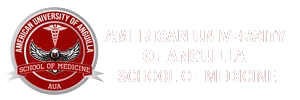

Blogs
WHAT IS MEDICAL SCHOOL?
Each Caribbean medical school curriculum is unique, but most schools divide training into two parts: pre-clinical and clinical. In a traditional four-year curriculum, the pre-clinical or diagnostic phase takes place during the first two years. This phase consists of science classes that teach basic medical concepts, diseases, diagnosis and treatment concepts, the structure and functions of the body, and the taking of medical histories. Basic science classes include:
- Anatomy
- Biochemistry
- Cell biology
- Evidence Based Medicine
- Genetics
- Histology
- Immunology
- Introduction to Clinical Medicine
- Microbiology
- Neuroscience
- Pathology
- Pharmacology
- Physiology
At the end of the first two years, students take final exams or the National Board of Medical
Examiners (NBME) Comprehensive Basic Science exam to demonstrate their knowledge and
progress. The exams serve as preparation for the United States Medical Licensing Examination
(USMLE) Step 1, also known as “The Boards”—the first official test of the medical licensure
process.
Many schools evaluate students on an honors/ pass/ fail basis, while others issue traditional
letter grades. Others may use a competency-based evaluation system that measures student
progression. Grades matter in pre-clinical training—particularly in later residency applications
and interviews—but they are only a part of the larger evaluation process. The most important
thing is to learn the material.
Aside from classwork and clinical training, medical students learn to build relationships with
mentors, explore medical career options, manage finances, and care for their personal physical
and mental well-being. Along the journey of becoming a doctor, medical students will learn that
Caribbean medical school is expensive, and it is also stressful.
The last two years of Caribbean medical school usually include the clerkships, or the clinical
portion of the training. Clinical rotations in year three of Caribbean medical school provide
supervised experience working with patients, and help give students an idea of which medical
specialty appeals to them most. During rotations, students are part of a medical team, led by an
attending physician, that includes residents (doctors-in-training) and interns (first-year
residents). To further explore specialties, students may also join specialty interest groups or
student sections of medical specialty societies. By the end of year three, most students have
decided what their specialty or patient population—kids, adults, or senior citizens—will be.
Specialties covered during clinical training include:
- Internal medicine
- Family medicine
- Obstetrics and gynecology
- Pediatrics
- Psychiatry
- Surgery
Students may take the NBME Comprehensive Clinical Science exam as well as the USMLE Step
2CK (Clinical Knowledge), the second part of the licensure process, between the third and fourth
year of Caribbean medical school. The USMLE Step 2 CS (Clinical Skills) was permanently
discontinued in January 2021 after being suspended in May 2020 due to the COVID-19 pandemic.
In the fourth and final year of Caribbean medical school, students continue clinical training and
dive deeper into specialties of interest. Students usually have the flexibility to train in various
hospitals or other locations. Students begin applying to residencies in year four—a process similar
to applying for entry to Caribbean medical schools—and go to residency interviews. Students
then create a “rank-order list” of preferred residency programs which is matched against a similar
list created by the programs. In late March—on “Match Day”—the majority of students learn if
they have been matched with a residency program to fill postgraduate training positions
accredited by the Accreditation Council for Graduate Medical Education (ACGME). Many medical
students match with one of their top three preferred residency programs, but students applying
to more competitive specialties may be matched with programs lower down their list or may not
earn a position of their choice.
The process of becoming a doctor concludes when medical students graduate at the end of year
four. By this time they have fulfilled all requirements, including any research or community
service obligations. They receive their Doctor of Medicine (or Doctor of Osteopathy) degree and
earn the title, Doctor. The newly minted physicians are not, however, ready to practice medicine
on their own.
